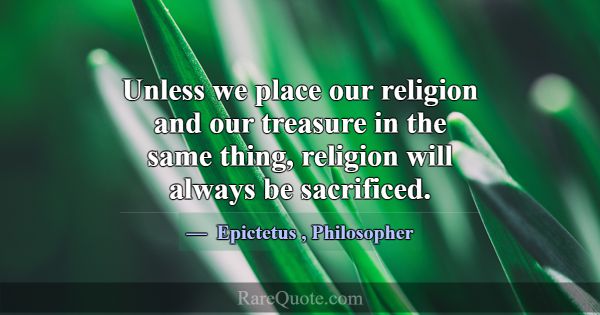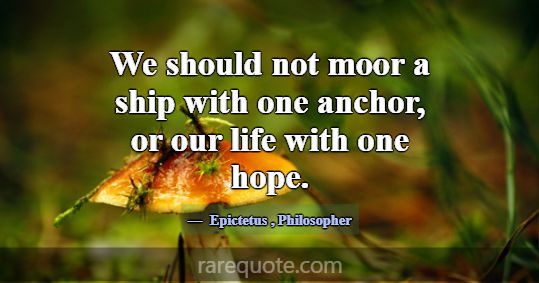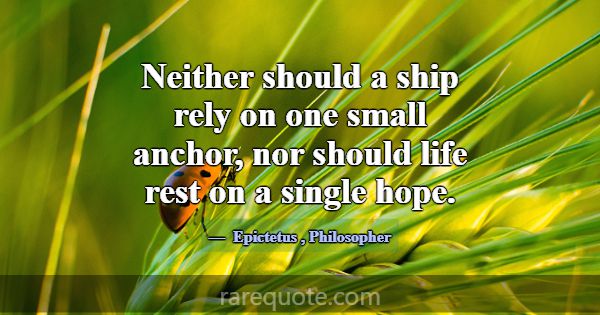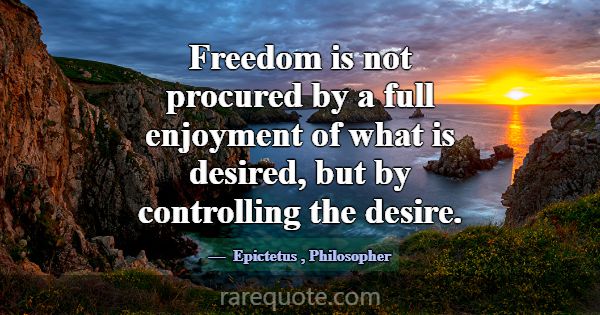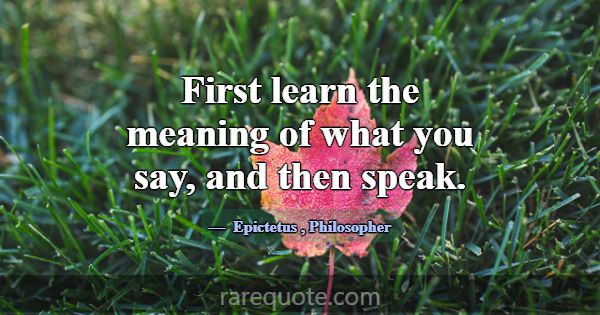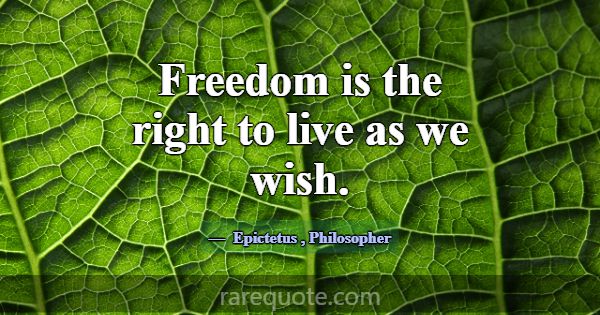Epictetus Quotes
Epictetus was an influential Stoic philosopher, known for his teachings on ethics, virtue, and inner peace. His philosophical insights continue to be studied and embraced as valuable guides to leading a meaningful life.
This quote suggests that significant achievements or creations do not occur instantaneously. It implies that greatness is the result of persistent effort, dedication, and a gradual accumulation of progress. It underscores the notion that greatness requires patience and time.
This quote emphasizes the importance of diversification and not relying solely on a single anchor or hope. It suggests that just as a ship needs multiple anchors for stability, life requires a range of hopes and aspirations for fulfillment and resilience.
This quote challenges the conventional notion of wealth as being solely determined by the accumulation of material possessions. Instead, it suggests that true wealth lies in having minimal desires or wants, implying that contentment and simplicity are more valuable than material abundance.
This quote expresses a sense of personal responsibility and accountability, suggesting that individuals have been entrusted by God with the task of taking care of and making choices for themselves.
The quote draws a parallel between a ship relying on multiple anchors for stability and a fulfilling life not depending on a single hope or expectation. It implies that a well-rounded and meaningful existence requires a diversity of hopes, dreams, and sources of purpose or fulfillment.
This quote highlights the role of perspective and interpretation in influencing human emotions and reactions. It suggests that it is not the objective nature of events or circumstances that disturb individuals, but rather their subjective perception and interpretation of those events.
This quote suggests that self-awareness and acknowledging one's own flaws or capacity for wrongdoing are essential for personal growth and moral development. It implies that recognizing one's potential for imperfection is the first step toward striving for goodness and ethical behavior.
This quote highlights the subjective nature of human perception and suggests that it is not external circumstances themselves but rather individuals' interpretations and perspectives that cause distress or disturbance.
Popular Topic
- Age
- Alone
- Amazing
- Anger
- Anniversary
- Architecture
- Art
- Attitude
- Beauty
- Best
- Birthday
- Brainy
- Business
- Car
- Chance
- Change
- Christmas
- Communication
- Computers
- Cool
- Courage
- Dad
- Dating
- Death
- Design
- Diet
- Dreams
- Easter
- Education
- Environmental
- Equality
- Experience
- Failure
- Faith
- Family
- Famous
- Father's Day
- Fear
- Finance
- Fitness
- Food
- Forgiveness
- Freedom
- Friendship
- Funny
- Future
- Gardening
- God
- Good
- Government
- Graduation
- Great
- Happiness
- Health
- History
- Home
- Hope
- Humor
- Imagination
- Independence
- Inspirational
- Intelligence
- Jealousy
- Knowledge
- Leadership
- Learning
- Legal
- Life
- Love
- Marriage
- Medical
- Memorial Day
- Men
- Mom
- Money
- Morning
- Mother's Day
- Motivational
- Movies
- Moving On
- Music
- Nature
- New Year's
- Parenting
- Patience
- Patriotism
- Peace
- Pet
- Poetry
- Politics
- Positive
- Power
- Relationship
- Religion
- Respect
- Romantic
- Sad
- Saint Patrick's Day
- Science
- Smile
- Society
- Space
- Sports
- Strength
- Success
- Sympathy
- Teacher
- Technology
- Teen
- Thankful
- Thanksgiving
- Time
- Travel
- Trust
- Truth
- Valentine's Day
- Veterans Day
- War
- Wedding
- Wisdom
- Women
- Work


